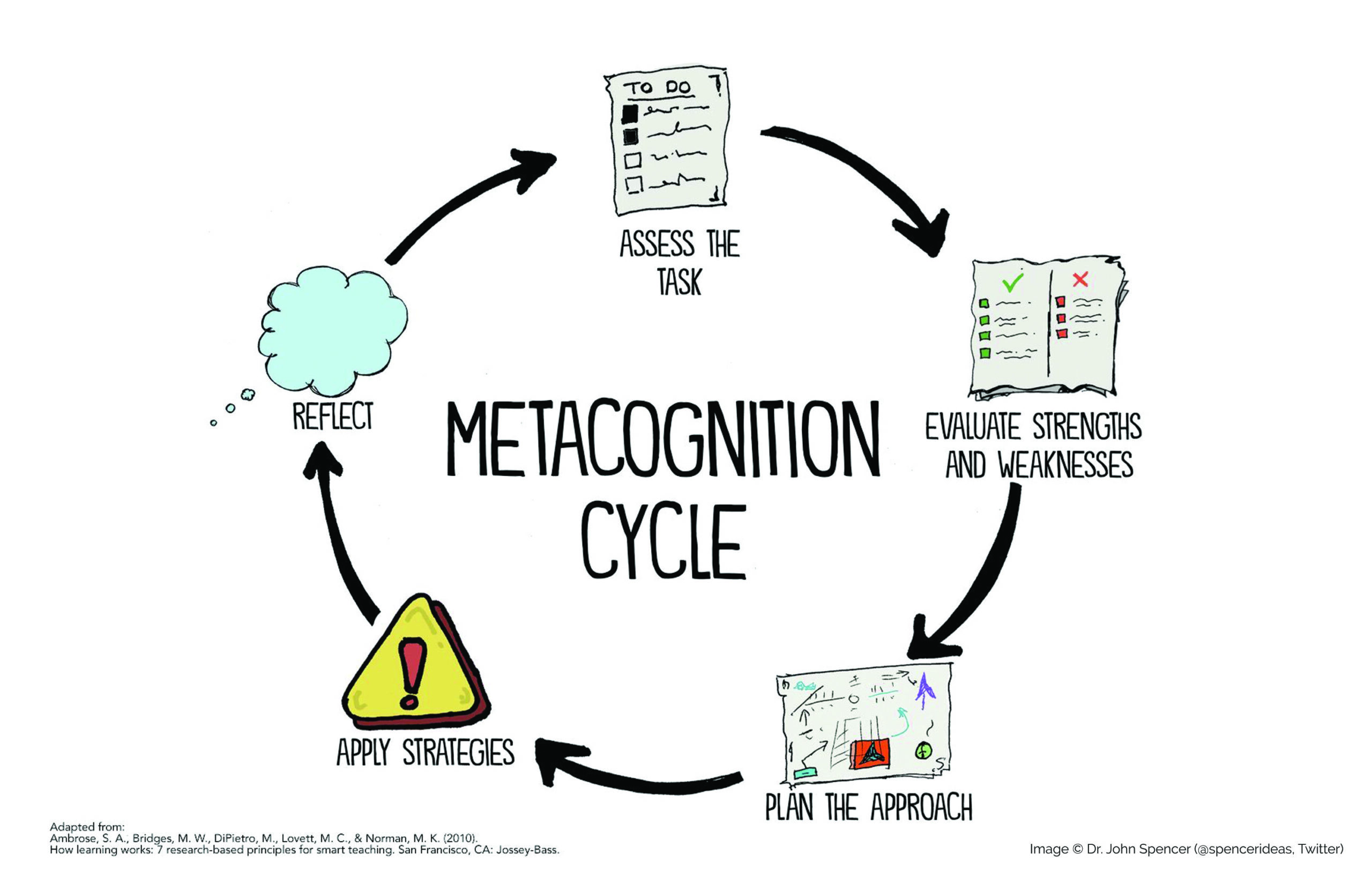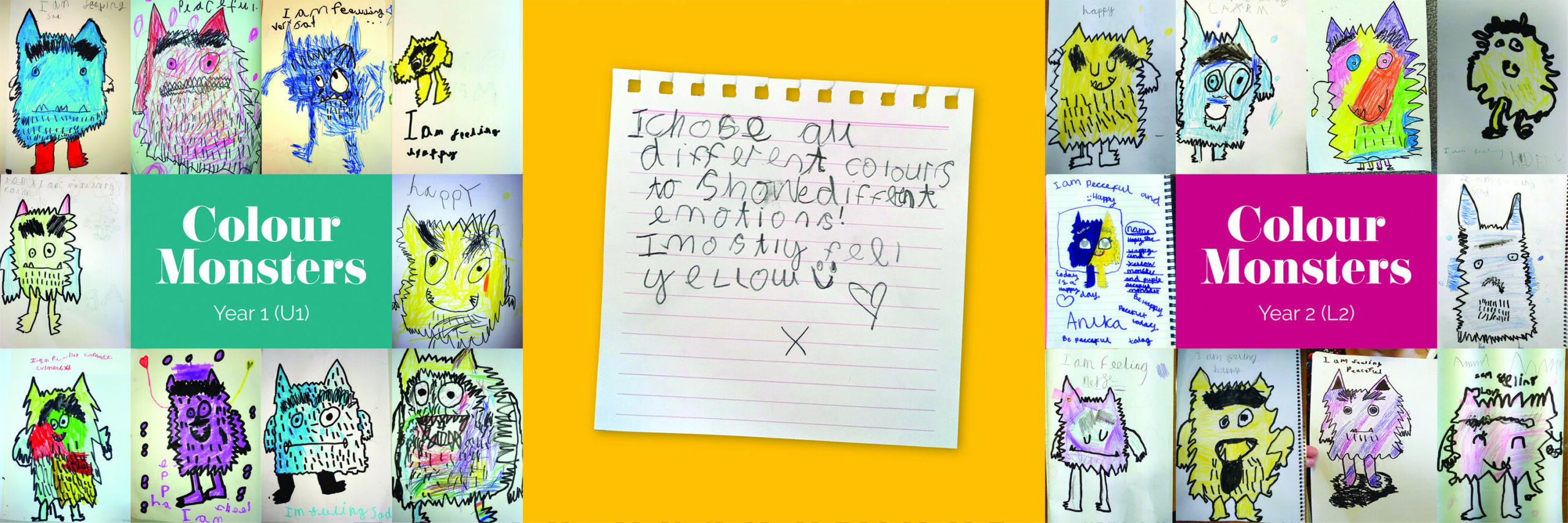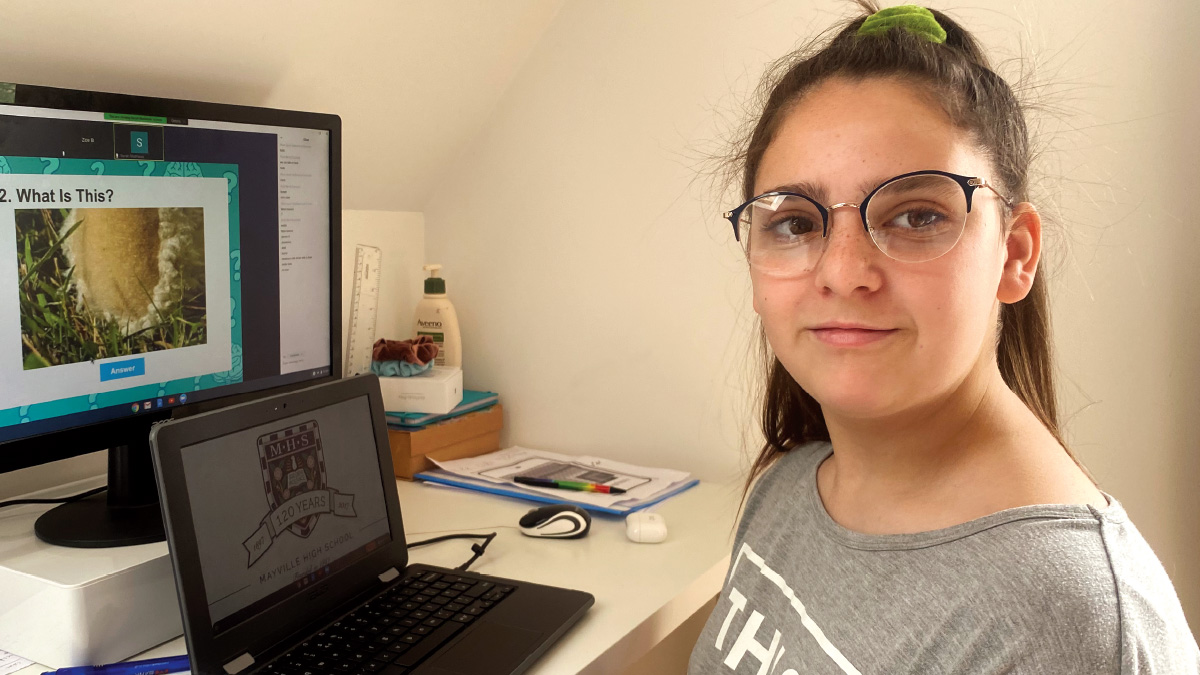Supporting Learning Differences Remotely
Author: Kelly Hewitt.
22nd February 2021.
The word ‘remote’ conjures up images of being far away. Distanced. Isolated. An island surrounded by warm blue shallow water. This is ideal if you are looking for a holiday and some peace, but what if the last thing you need or want, is to be remote?
For some pupils with learning differences, remote learning has propelled them into a world of insecurity and the unknown, filling their minds with anxiety and self doubt. This is not surprising, as being away from ‘school’ – a place of safety and security, which is full of routine and reliability and familiarity and friendships – means that they are unable to apply their learning strategies.
Learning strategies – learning to learn
Our children in the Nursery School are in the beginning stages of their learning journey – learning how to listen and understand, learning how to play and work as a team and learning to be curious and ask questions. They are learning how to cope when something goes wrong and how to celebrate when something goes right. They are learning how to learn. They are developing ‘strategies’. We should never underestimate the ability of our pupils to develop their own unique learning strategies and their adaptability to use them. They use them so effectively, to navigate their way through their learning journeys throughout their lives.
Our pupils with learning differences often rely heavily on their unique learning strategies to overcome the barriers to learning. There are many different strategies that pupils use, such as: planning, monitoring and evaluating, effectively known as ‘Metacognitive Strategies’. These can look very different for each individual pupil.

We are currently experiencing an unknown future. This is hard for those who are ‘born to plan’. Planning is a strategy to help us cope, it helps to reduce anxiety. Planning involves a routine. Having a routine is a strategy, it allows us to know what is happening next. It brings familiarity, and familiarity brings security. Security brings peace. Familiarity involves friendships, conversations and laughter, debates and disagreements. A hug, a smile, feeling safe, a sense of belonging.
How do we support our pupils when their main strategy is the need for reassurance from their teachers or friends? How do we support the individual who struggles to get started in class, who discretely looks round at everybody’s work and then develops their own ideas or just needs their teacher to suggest different perspectives? How do we support the pupil who asks their friend, ‘do you think this is a good idea?’ before starting their work, just because they know that sharing ideas helps to grow bigger ideas. How do we support the pupil who worries that they haven’t read the question properly, worrying about getting their work wrong, worrying about keeping up and not falling behind? How do these pupils cope remotely?”
The Mayville difference
We know our pupils at Mayville. We understand their learning differences and we know their strategies. We know their friends and their families. We know how to support them. From our very youngest to those who are near the end of their Mayville Journey, we have been encouraging them to adapt and develop new strategies. Teaching them, and us, that it is OK to try something new. A new way of doing something is hard, it makes us feel uncomfortable and at times frustrated, but we are there to reassure our pupils that we are with them every step of the way. Our pupils at Mayville are valued as individuals, celebrated for their uniqueness and supported and nurtured to be the very best they can be. Our staff are dedicated and committed to reaching out to every pupil ensuring that they are not alone in their journey.
Remote doesn’t have to be ‘remote’
Connection has been the most effective strategy staff have been able to offer our pupils, and I am not talking ‘internet’, as that is an issue seemingly out of our control, but a personal connection with our pupils and their families.
Staff quickly learnt to adapt to delivering learning in different ways. They are consistently offering live lessons, pre-recorded lessons, live story times, assemblies for celebrations, quizzes, links to educational videos, 1:1 support and 1:1 catch up sessions. We have encouraged our pupils to follow the school timetable, attend tutor times and lessons ready for learning. We have supported pupils in setting up routines, helped with organisation skills and actively encouraged pupils to take a break and have lunch, go for a walk and get some fresh air. In the Senior School, we have reduced lesson length to allow pupils to take a short break between lessons, as they would in school. We have followed up with individual calls home and offered pastoral support to those pupils who needed a little extra to get them settled and adjusted.
For those pupils who need to work alongside their friends, we have breakout rooms in Google Meet, where pupils can work collaboratively in virtual rooms. Work can be shared to teachers using Google Slides or Google Chat and immediate feedback and help can be given. The pupils know that a teacher is always there for them. We offer flexibility to help manage workload and extra time. We know our pupils need this. We know it makes a difference to them.
Our pupils with learning differences are already experienced in using technology, they are fully versed in using Read Write, a program that will read text aloud. In reducing the reading demand, it allows pupils to focus on comprehending the text. Pupils can use the ‘speech to text’ function on Google Docs as well as Read Write. In reducing the demand on handwriting and spelling, it enables pupils to take risks with their ideas and use their extensive vocabulary. Pupils have really engaged with the variety of online learning styles, such as quizzes, or Google Slides and they are enjoying uploading their work in a variety of formats, such as short videos, presentations and photos of work in action. This ensures that pupils can demonstrate their understanding, in a way that supports their individual interests and strengths. Staff have encouraged pupils to be as creative as possible and in the Junior and Pre-Prep departments, interactive live cooking, art, PE and dance lessons have taken place.

Some of our younger pupils recently explored emotions through colour, in response to a reading of the story 'The Colour Monster', by Anna Llenas
We are honest, we know that no matter how good our remote learning is for all pupils, particularly our pupils with learning differences, we know that we cannot reach all of our pupils in the way we want. We know that it is because there is no substitute for classroom teaching. We have encouraged these pupils to come to school to enable them to use their unique learning strategies ‘in-situ’. Although ‘school’ is currently very different from what they are familiar with, some of our pupils are managing better just by being at ‘school’.
We know that there is also a difference between our younger pupils, who have absolutely loved being on Zoom meetings, seeing all their friends, experimenting with what they look like close up to the camera, compared to our Senior School pupils, who are likely to take a more passive role in Google Meet, camera off and muted! We have counteracted this with how we, as staff, communicate with pupils of different ages, to ensure engagement is consistently effective.
However, we have noticed some incredible positive changes in our pupils. We have seen an increase in independence. We have seen an increase in organisational skills. We have seen pupils taking risks with new challenges and learning perseverance. We have seen an increase in attention and focus. We have seen confidence levels rise when pupils ask for help.”
Our pupils have written songs, poems and stories, they have played instruments, danced and learnt yoga. They have motivated each other to do online workouts in PE. They have created works of art and baked cakes and biscuits. We are seeing families bonding during STEM day, families are cooking together, sharing and negotiating resources and space, learning how to be patient with each other, joining in shared reading sessions, playing games together. They have learnt how to argue… and make up. Our challenge, as a school, is to learn from our pupils and bring more of what worked well for them into the classroom.
We will look back on this time in history, we will reflect. We will know that we all stood together at Mayville, and that we were there with our pupils every step of the way. We are so proud of all that they have achieved, and thank the parents for supporting their children and their teachers in incredibly difficult circumstances. We would like to think that the pupils and their families will remember that they were only remote by distance.
Share this Post

